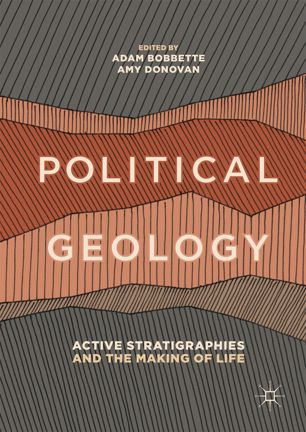

Most ebook files are in PDF format, so you can easily read them using various software such as Foxit Reader or directly on the Google Chrome browser.
Some ebook files are released by publishers in other formats such as .awz, .mobi, .epub, .fb2, etc. You may need to install specific software to read these formats on mobile/PC, such as Calibre.
Please read the tutorial at this link: https://ebookbell.com/faq
We offer FREE conversion to the popular formats you request; however, this may take some time. Therefore, right after payment, please email us, and we will try to provide the service as quickly as possible.
For some exceptional file formats or broken links (if any), please refrain from opening any disputes. Instead, email us first, and we will try to assist within a maximum of 6 hours.
EbookBell Team

5.0
80 reviewsThis book explores the emerging field of political geology, an area of study dedicated to understanding the cross-sections between geology and politics. It considers how geological forces such as earthquakes, volcanoes, and unstable ground are political forces and how political forces have an impact on the earth. Together the authors seek to understand how the geos has been known, spoken for, captured, controlled and represented while creating the active underlying strata for producing worlds.
This comprehensive collection covers a variety of interdisciplinary topics including the history of the geological sciences, non-Western theories of geology, the origin of the earth, and the relationship between humans and nature. It includes chapters that re-think the earth’s ‘geostory’ as well as case studies on the politics of earthquakes in Mexico city, shamans on an Indonesian volcano, geologists at Oxford, and eroding islands in Japan. In each case political geology is attentive to the encounters between political projects and the generative geological materials that are enlisted and often slip, liquefy or erode away. This book will be of great interest to scholars and practitioners across the political and geographical sciences, as well as to philosophers of science, anthropologists and sociologists more broadly.